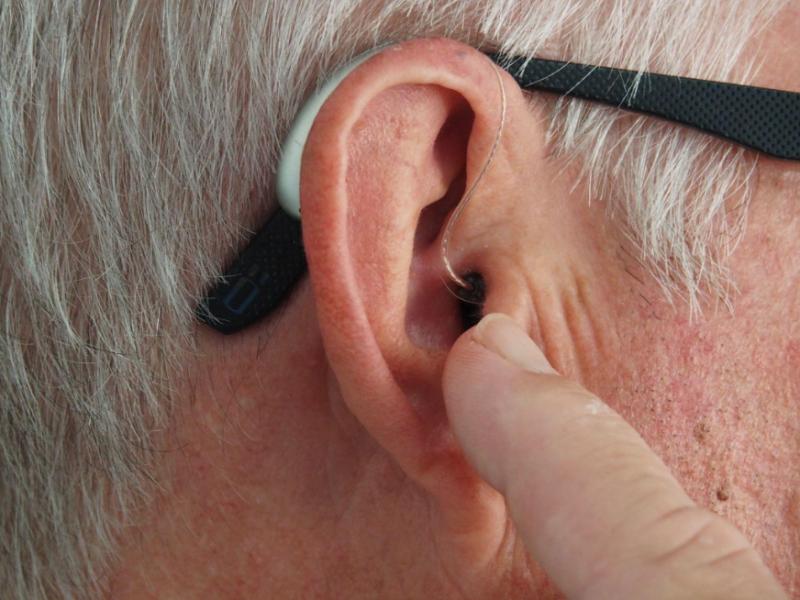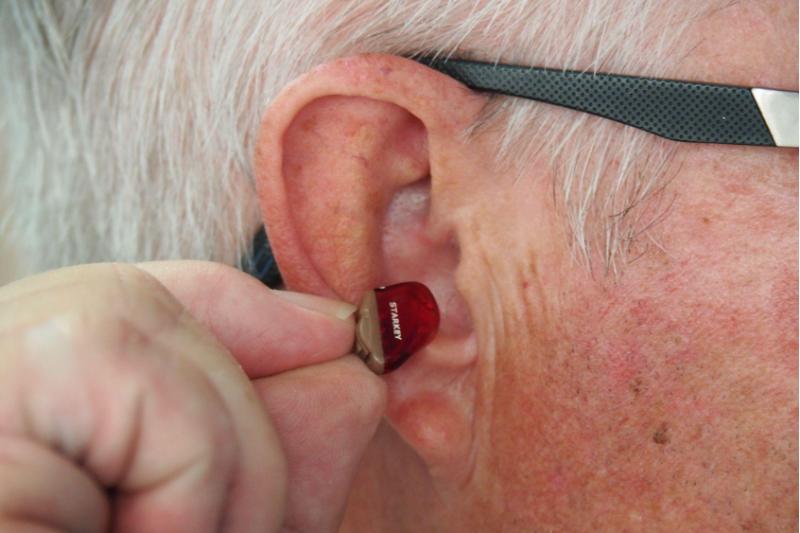Quality Difference Between a Hearing Aid vs. Hearing Amplifier
An estimated 37.5% of American adults have some degree of hearing loss, making it one of the most prevalent health problems in the US. Hearing aids are one of the most effective therapy options, however, for some people, the price of hearing aids is a barrier to their use. As a result, many look for less expensive solutions, such as hearing amplifiers, as an alternative to traditional hearing aids.
These less expensive hearing aids may help those with mild hearing loss, but they are not a good option for those with serious or severe hearing loss and may even do them harm. Before deciding on a course of action to treat your hearing loss, it is important to learn the difference between a hearing amplifier vs hearing aid to know what’s the best solution to your hearing problem.
Whatever option you’re thinking about purchasing, we're here to bring you the facts and help explain the main differences between them as a form of treatment.

Photo by Mark Paton on Unsplash
Are Ear Amplifiers Effective?
Hearing amplifiers are devices that boost noise levels and allow those with normal hearing to pick up on speech from a distance or in a quiet environment. When used properly, hearing amplifiers are indeed effective. But they are never to be used to treat impaired hearing.
Sound amplifiers enhance any sound within a certain range. Consequently, the underlying issue is not resolved when patients use hearing amplifiers to treat their deafness.
On the other hand, hearing aids are designed exclusively for those with hearing impairments. In addition to enhancing all sounds, hearing aids are calibrated to enhance just the ones that are the most difficult for the wearer to hear.
Another issue is that if you choose to purchase a hearing amplifier without seeing a professional, you will be missing out on valuable advice. To make an accurate diagnosis of hearing loss, a doctor must perform an audiogram. If you're having trouble hearing, it's important to have it checked out by a specialist as soon as possible, because delaying treatment might mean the difference between moderate and severe hearing loss.
Are Hearing Amplifiers Harmful to Your Hearing?
In the long term, employing an amplification device to address hearing loss is harmful. With a hearing amplifier, every sound within a certain range is amplified, even the ones you'd rather not pay attention to. Hearing amplifiers may cause permanent harm to your hearing since their production is not controlled like that of hearing aids. The construction ear inserts often force wax further into the ear canal, leading to impacted wax that requires surgical removal.
Different Kinds of Hearing Aids
Hearing aids come in a wide variety of styles and technologies, each suited to a specific range of hearing loss. You may be prescribed a variant of these models distinct from the standard fare based on the details of your treatment plan.
ITE (in-the-ear)
In-the-ear hearing aids are fitted to the wearer with the help of an ear impression taken during the hearing aid consultation.
BTE (behind-the-ear)
These devices rest behind or on top of the outer ear and use a tailored earmold to channel sound into the ear canal without filling it.

Photo by Mark Paton on Unsplash
Why Are Hearing Aids’ Most Effective Treatment Option?
The Food and Drug Administration has classified hearing aids as a Class 1 medical device, indicating that they are a safe and effective therapeutic option. Additionally, only licensed hearing care specialists should fit or service hearing aids since this will guarantee a proper fit and optimal performance.
The effects of hearing loss vary from person to person. As a result, sound must be processed and fine-tuned specifically for your disability for any therapy to be effective. So, there is no one-size-fits-all method of therapy. When you work with a hearing care specialist, you can be certain that your hearing aid and treatment plan will be customized to your unique situation.
To provide the finest possible sound quality to those with hearing loss, even the simplest hearing aid designs use extremely complex technology and carefully studied and verified sound processing algorithms.
Final Thoughts
The lesson to be learned is that hearing aids are not amplifiers, and amplifiers are not hearing aids. If you have trouble hearing, a hearing aid could be the answer. The investment may be high, but getting the proper amount of volume at the right frequencies is worth it.
Personal sound amplification devices have a use, however, they are best suited for those with normal hearing who have special listening demands in certain settings.
More to Read:
Previous Posts:








